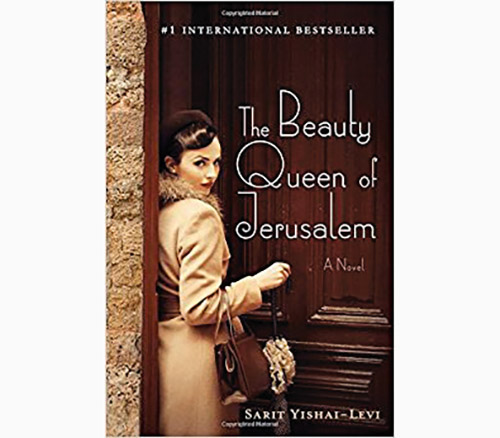
Reviewing: “Beauty Queen of Jerusalem,” by Sarit Yishai-Levi. Thomas Dunne Books, an imprint of St. Martin’s Press. Hardcover, 374 pages. Original text copyright, 2013 by Modan Publishing House, Ltd. English translation copyright 2016 by Anthony Berris. ISBN: 978-1-250-07816-2.
Sarit Yishai-Levi’s “The Beauty Queen of Jerusalem” is a novel about family history and loyalty, all told through the lens of Gabriela, a young woman intent on learning about the long line of tenacious matriarchs from which she came.
Gabriela retells the stories of her relatives, explaining why the women in her family can be strong, yet strangely distant and unloving. She learns that her mother, Luna; grandmother, Nona Rosa; and great-grandmother, Mercada, were all married out of necessity, not love. They were women who never understood love and therefore did not know how to properly foster the emotion in their children, who then grew up with a recycled emotional deficit that they passed on to their children as well.
Readers of Yishai-Levi’s novel are spectators of the story, learning of other characters’ memories secondhand and thirdhand, through the lens of Gabriela. Yet, while readers may merely be a speck on Gabriela’s shoulder while she listens to the stories of her aunt, Tia Allegra, and relays Nona Rosa’s memories, they are still privy to vivid and engrossing tales of her relatives’ lives. Readers are thrown back in time in the midst of Nona Rosa’s dialogue to the streets of Jerusalem in the mid 20th century where Sephardic families did everything they could to avoid intermarriage with Ashkenazim and where, consequently, Sephardic men were occasionally forced to marry women within their heritage to keep their eyes away from any forbidden fruit. Nona Rosa and Mercada were women who suffered the consequences of a marriage made out of desperation instead of love. Luna also married a man in love with another woman, and never treated Gabriela with any motherly affection.
The stories of secret heartaches and family trials are poignant enough to ignite Gabriela’s own curiosity in readers of the story. Readers will feel the need to tug at Tia Allegra’s sleeve to urge her to continue her reminiscing, and have them wondering why Gabriela’s relatives made the choices they did, no matter how selfless they seemed to be.
Yishai-Levi gives Gabriela’s insatiable curiosity a purpose; she simply wants to understand her childhood. She wants to understand why her mother, stiff and unloving, treated her the way she did. She wants to unravel the complexities of her mother, Luna, and in order to do so she has to dig through a convoluted past so realistic that it will likely leave readers wondering about the consequences of their own family history.
By Elizabeth Zakaim








